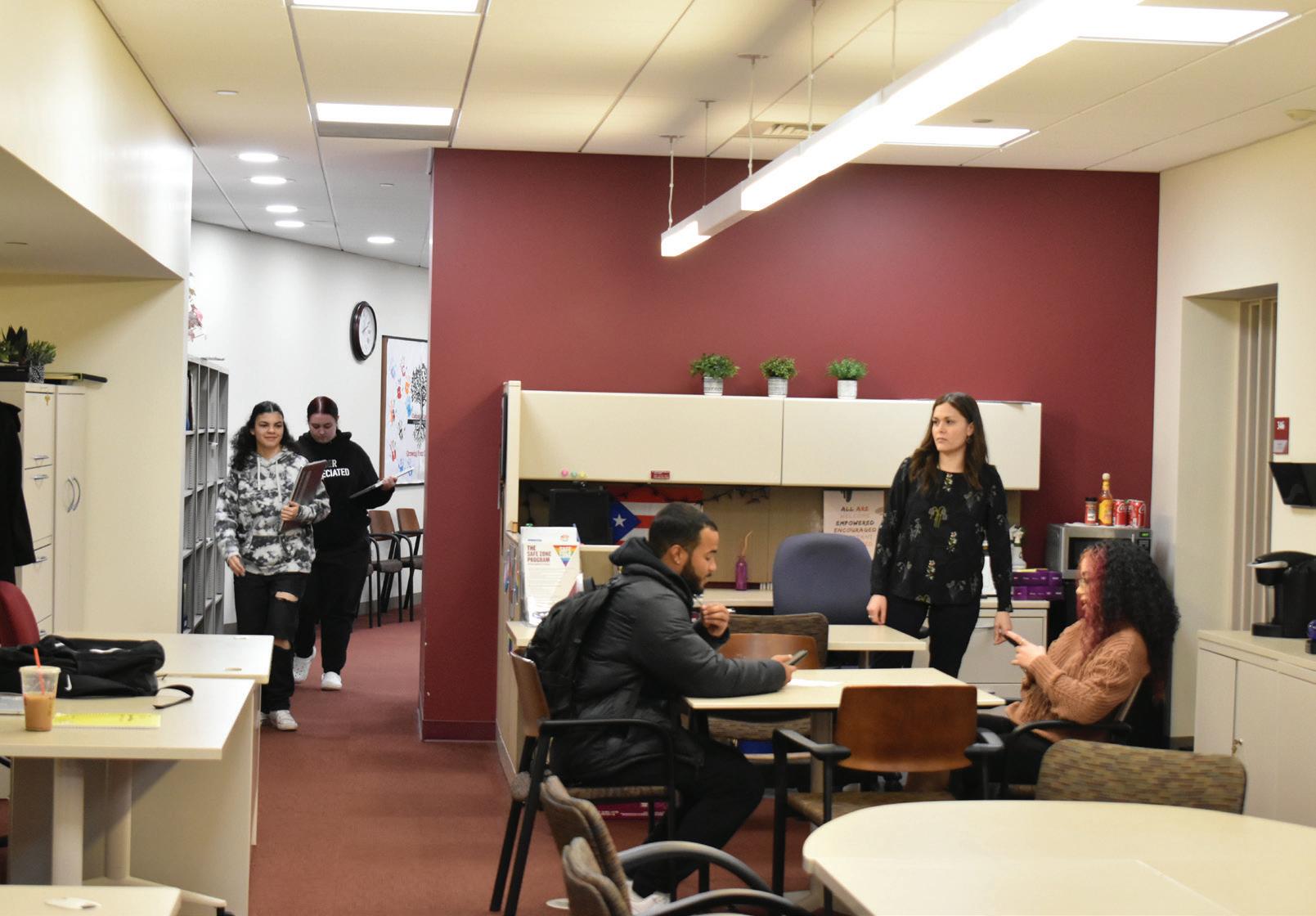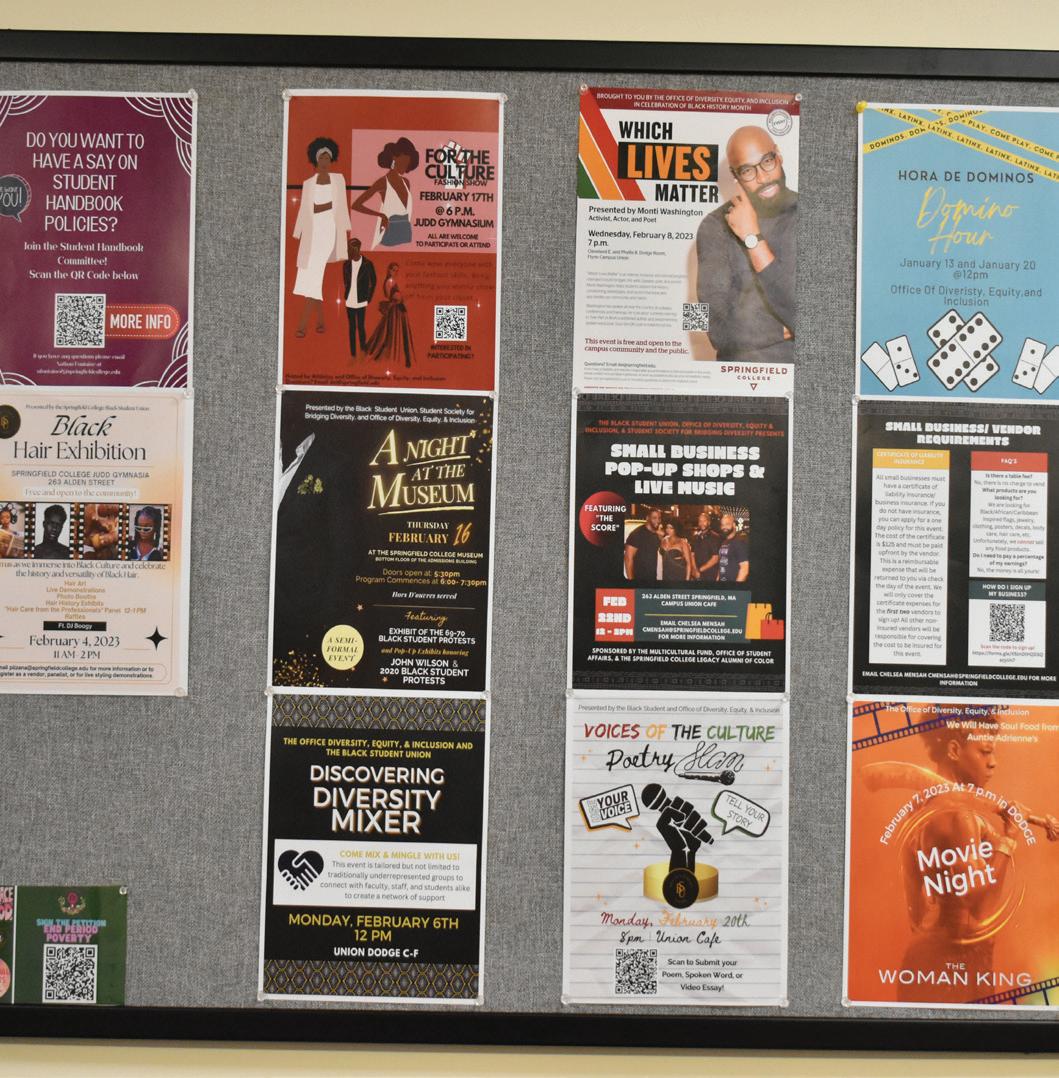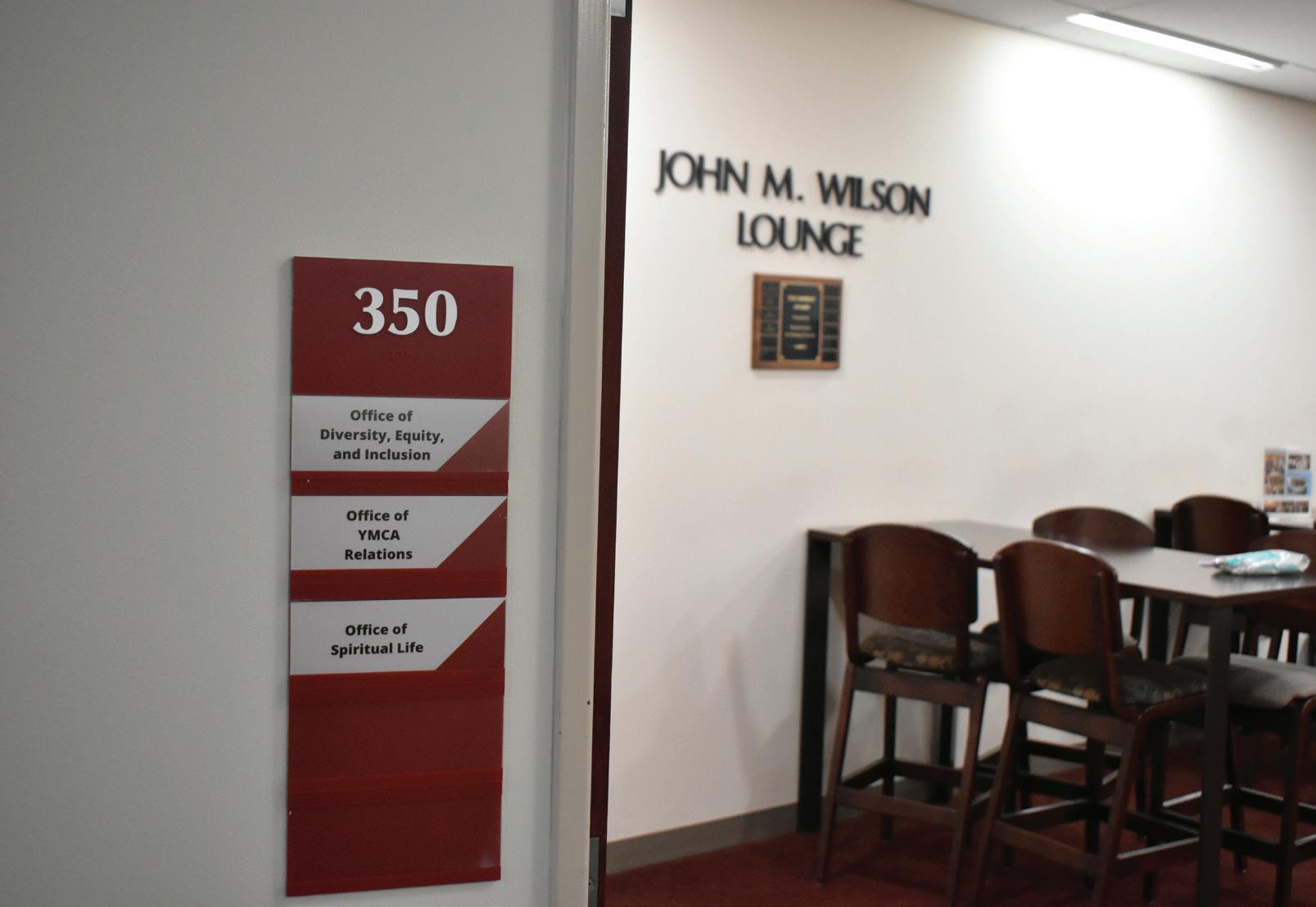
3 minute read
Education and celebration
The Springfield College office of Diversity, Equity and Inclusion has a full slate of plans to celebrate Black History during the month of February and beyond.
__ By Luke Whitehouse @Lwhitehouse12
Advertisement
In 1976, United States President Gerald Ford officially recognized February as Black History Month. He was quoted saying we have to “seize the opportunity to honor the too-often neglected accomplishments of Black Americans in every area of endeavor throughout our history.’’ Since then, the country has celebrated Black History every February, which includes the education on the history and culture in the Black culture inside the United States.
At Springfield College, Black History Month has been recognized over the past several years. The College works diligently to plan events that both serve to educate and celebrate the diversity of African American heritage.
During COVID, many of these events were held on Zoom, which made campus engagement much more difficult.
This year, with a newly appointed staff, the office of Diversity, Equity and Inclusion (DEI) will look to make the month of February special while using a different approach.
“I wanted to just hear the students’ voices,” Rose Del Val- le, who works as an Administrative Associate within the DEI office, said. “I wanted to know how they wanted to be celebrated. So, as a team, we made sure we talked to different clubs, and figured out what direction they wanted Black History Month to go in.”
In the past, the College has focused mostly on the education aspect, which has included guest speakers. Some of those speakers were former alumni who shared their experiences and educated the campus on Black history.
While the education of Black history is very important and will be a piece of this year’s month-long commemoration, the celebration of Black culture will also be at the forefront of the festivities.
“Black History Month, like the other affinity months, such as Indigenous People’s Month or Hispanic Heritage Month, is to highlight the impact these specific communities have on regular society,” Director of the Office of DEI, Deja Ware, said. “Black history is part of American history… and so we know there’s a need to say, ‘Hey there are these great parts of history and great leaders that are doing great work in communities. And there are these businesses that exist that might be overshadowed that deserve to be celebrated.’”
Ware says that during the month of February, the office plans to have pop-up vendors of Blackowned businesses within the area come to campus and provide an opportunity for staff and students to learn more about them. Some other events include a “For The Culture” fashion show held inside Judd Gymnasia on Feb. 17, and an event where multiple local Black musicians will come and perform inside the Student Union on Feb. 22. There will be flyers posted throughout the campus, and via email, that detail upcoming events during Black History Month.
Beyond Black History Month, the Office of DEI aims to impact the campus in positive ways going forward.

Ware, Del Valle and the rest of the staff are in their first year of the newly formed DEI office, formerly known as the Office of Multicultural Affairs.
“Being an alumni, it’s a great opportunity for me to come back and hear what the current student experience is like,” Ware said. “I want to create a community that feels familiar for them, and to create a sense of belonging no matter the background they come from. So, I think that being student-focused and student-led, and learning how to best assist the students, is simply by listening to them; what they’re saying they need.”
The office has a goal to help other identities of diversity, outside of just race, assisting students with any varying disabilities.
Ware says that the fact that Springfield welcomes this education is a positive thing.
“I think as an institution, it’s important that diversity, equity and inclusion are supported at every level,” Ware said. “And having the backing and support of the College is very important. I think that understanding the work that DEI does needs to be in each part of a student’s experience to create true holistic experience.”
The plan is to make DEI a part of classrooms, not just office visits, and show that there is an intentional effort to expand the knowledge of DEI for professors and students.
“It’s about making sure that they’re understanding correct pronoun usage, and acknowledging a student’s differences as a part of their academic experience,” Ware said. “Making sure that we’re providing assistive learning technology for students who need to utilize them. It’s more than just about doing the work, we all have to be on board. So, to know that institutionally, we are all seeing that DEI is at the forefront of us being successful, is very heartwarming.”
The DEI office includes Ware, Del Valle, student success coach Arlene Ramos-Ortiz as well as two graduate assistants, Grayson Stevens and Rhea Bhatia. The DEI office can be found upstairs in the Student Union, and is open to anyone.











